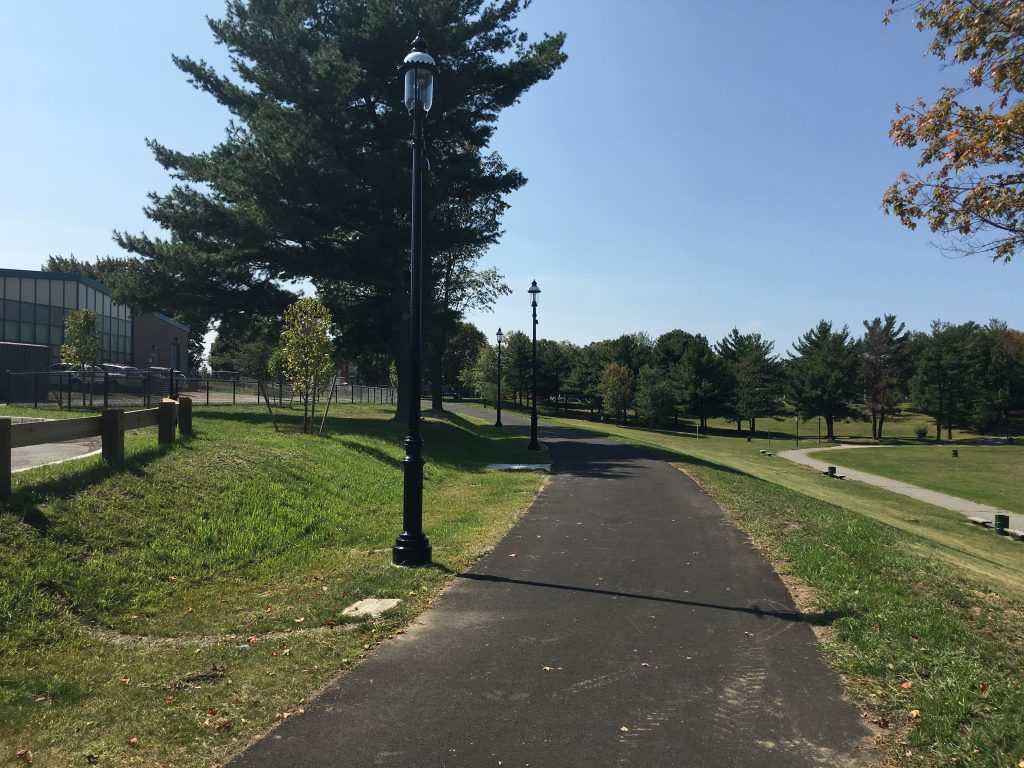
News
By Brian Lutenegger, January 30, 2018
 Flickr)
Flickr)
Local leaders in Lowell, Massachusetts are working hard to make their streets safer and more accessible, passing a Complete Streets policy several years ago and advancing or completing a number of recent projects that prioritize the need to make streets safe and convenient for users of all ages and all abilities. But they’re eager to do more, and a recent SGA workshop helped them identify key changes that will allow them to better integrate Complete Streets into the processes for designing and reviewing new projects.
Known as the cradle of the American Industrial revolution, Lowell has evolved from its industrial roots into a diverse city with a population of approximately 110,000. Located about 25 miles north-northwest of Boston, it’s home to the University of Massachusetts-Lowell campus, the second largest public university in the state.
Lowell adopted a Complete Streets policy in August 2015, like many municipalities across the country, to make their streets safer and more accessible. With this policy in place, the city needed some assistance moving to the critical next step—implementation. After applying, the city was chosen for a technical assistance workshop at no cost to them from SGA through an EPA Office of Sustainable Communities Building Blocks grant. The two-day workshop helped Lowell define the challenges and next steps for implementing Complete Streets in the city.
Changing practices to reflect Complete Streets priorities
The workshop spurred changes in how Lowell evaluates proposed roadway projects and led to the creation of a new Complete Streets implementation and prioritization plan. This plan provides a map-based representation of proposed Complete Streets projects across the city to more holistically rank projects based on:
- Identified Complete Streets goals: safety, accessibility, pedestrian and bicycle mobility, and vehicle access/operations
- Project type: traffic, bicycle, transit, or walking
- Source/origin of the proposed project: the master plan, capital improvement plan, or other assessments/audits
- Other city priorities: environmental justice considerations, existing infrastructure connections, coordination with other projects, etc.
Links to the implementation and prioritization plan as well as other tools are available on the city’s Complete Streets page.
Making headway on projects
Lowell is moving forward with several projects identified through the Complete Streets prioritization plan. One such project is the construction of shared-use paths in the South Common, a park located in the center of the city adjacent to a transportation center, a school, and low-income housing. The shared use paths—intended for bicyclists and pedestrians—were completed in September 2017 and addressed lighting and other safety needs in addition to the paths themselves. By simplifying connections between destinations around the park, the project also helps encourage more walking and biking in Lowell.

Intersection safety is another key issue that Lowell is addressing. For example, the Lord Overpass Project will redesign a busy interchange to help all users navigate it more safely. One street will be converted into a boulevard which will help slow traffic and include exclusive bus and bicycle lanes. For people walking, better sidewalks, crosswalks, and traffic islands will make crossings easier, and improve the user experience along the road.
Lowell is also considering roadway safety across the city by auditing other existing roadways to identify possible improvements. The audits will help the city prioritize future projects, targeting funding to the projects that will help them best achieve their goals.
There are many other Complete Streets projects in various stages in Lowell. And using their new framework, the city will integrate Complete Streets into the planning and design processes for future projects from the beginning. Lowell’s staff will continue to provide updates to City Council and expects that the council’s commitment to Complete Streets will continue despite recent elections leading to turnover in the makeup of the council.
For more information on Smart Growth America’s Technical Assistance program and how your community can request assistance from SGA on a variety of land use, development, and transportation challenges, please visit our technical assistance home page to learn more.
Related News

© 2025 Smart Growth America. All rights reserved
Site By3Lane Marketing












